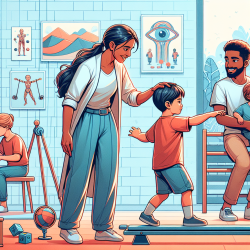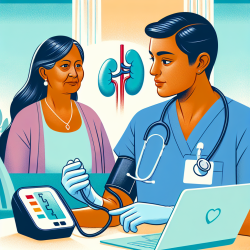Understanding DCD and Motor Control Deficits
Developmental Coordination Disorder (DCD) is a neurodevelopmental condition that impacts a child's ability to perform coordinated motor tasks. These challenges can significantly affect daily activities such as writing, catching a ball, or tying shoelaces. Despite its prevalence, DCD is often under-recognized, partly due to the variability in symptoms among affected children.
Research Insights: Unimanual and Bimanual Motor Performance
A recent study titled "Unimanual and bimanual motor performance in children with developmental coordination disorder (DCD) provide evidence for underlying motor control deficits" sheds light on the motor control deficits in children with DCD. The study utilized robotic behavioral tasks to assess motor performance in both the dominant and non-dominant limbs of children with DCD.
The findings revealed that children with DCD exhibited impairments in six out of nine motor performance parameters, with deficits more pronounced in the non-dominant limb. This highlights the importance of assessing both limbs to gain a comprehensive understanding of motor control issues in children with DCD.
Practical Implications for Practitioners
As a practitioner, you can leverage these insights to enhance your therapeutic interventions. Here are some practical steps to consider:
- Comprehensive Assessments: Ensure that both dominant and non-dominant limbs are evaluated during assessments to capture the full spectrum of motor control deficits.
- Tailored Interventions: Develop therapy programs that address bilateral motor skills, focusing on improving coordination and control in both limbs.
- Incorporate Robotics: Consider integrating robotic assessments into your practice. These tools offer objective and reliable measures of motor performance, providing valuable insights into a child's specific challenges.
- Collaborative Approach: Work closely with parents and educators to create a supportive environment that encourages practice and reinforcement of motor skills in various settings.
Encouraging Further Research
The variability in motor performance among children with DCD underscores the need for continued research. By exploring individual differences and testing new interventions, we can develop more effective strategies to support children with DCD.
To stay informed about the latest developments in DCD research, consider attending conferences, participating in webinars, and reading relevant publications. Networking with other professionals in the field can also provide valuable insights and foster collaborative efforts.
Conclusion
Understanding the motor control deficits in children with DCD is crucial for developing effective interventions. By implementing comprehensive assessments and tailored therapy programs, practitioners can make a significant impact on the lives of children with DCD. For more detailed information, I encourage you to read the original research paper: "Unimanual and bimanual motor performance in children with developmental coordination disorder (DCD) provide evidence for underlying motor control deficits".










